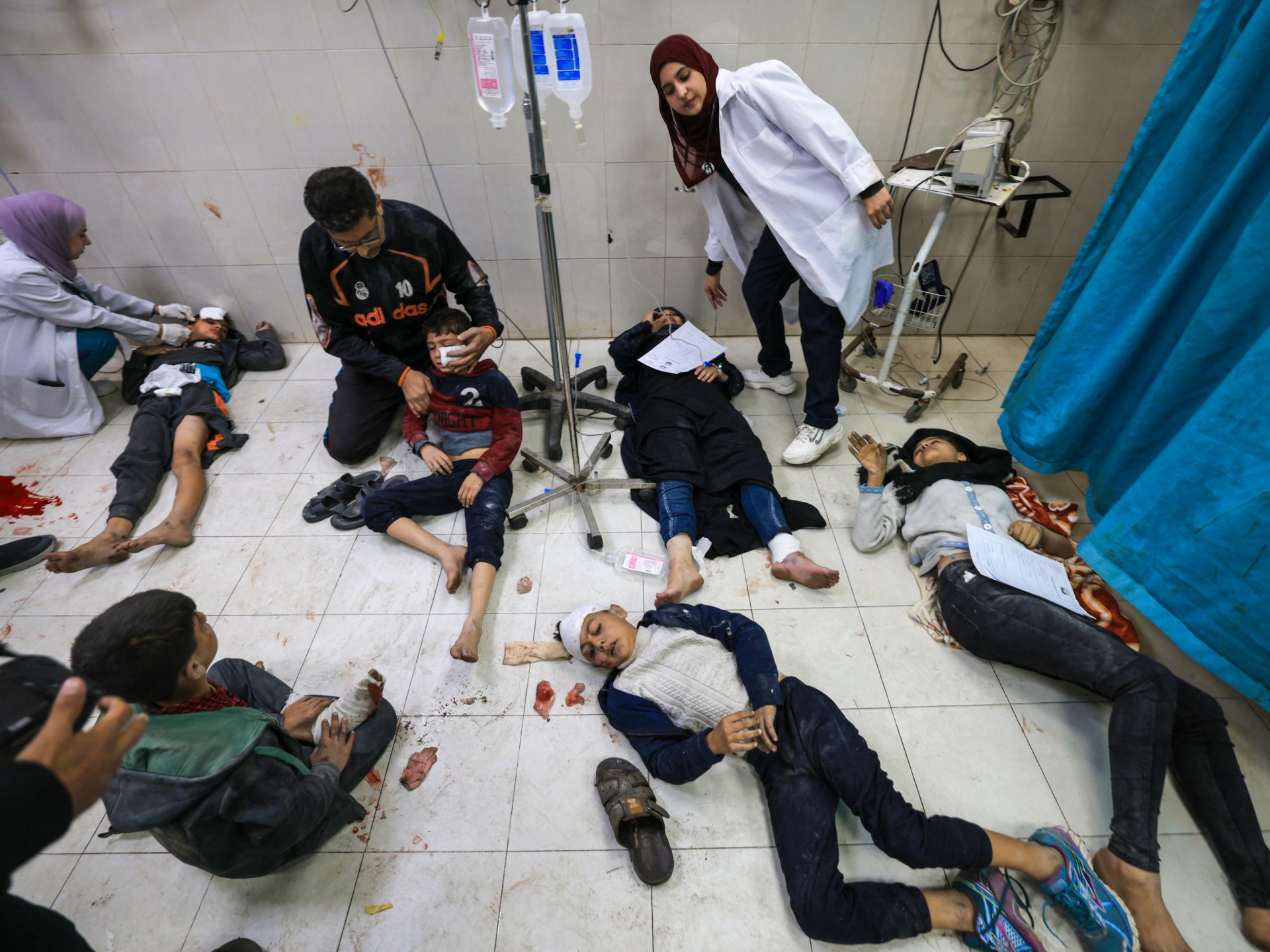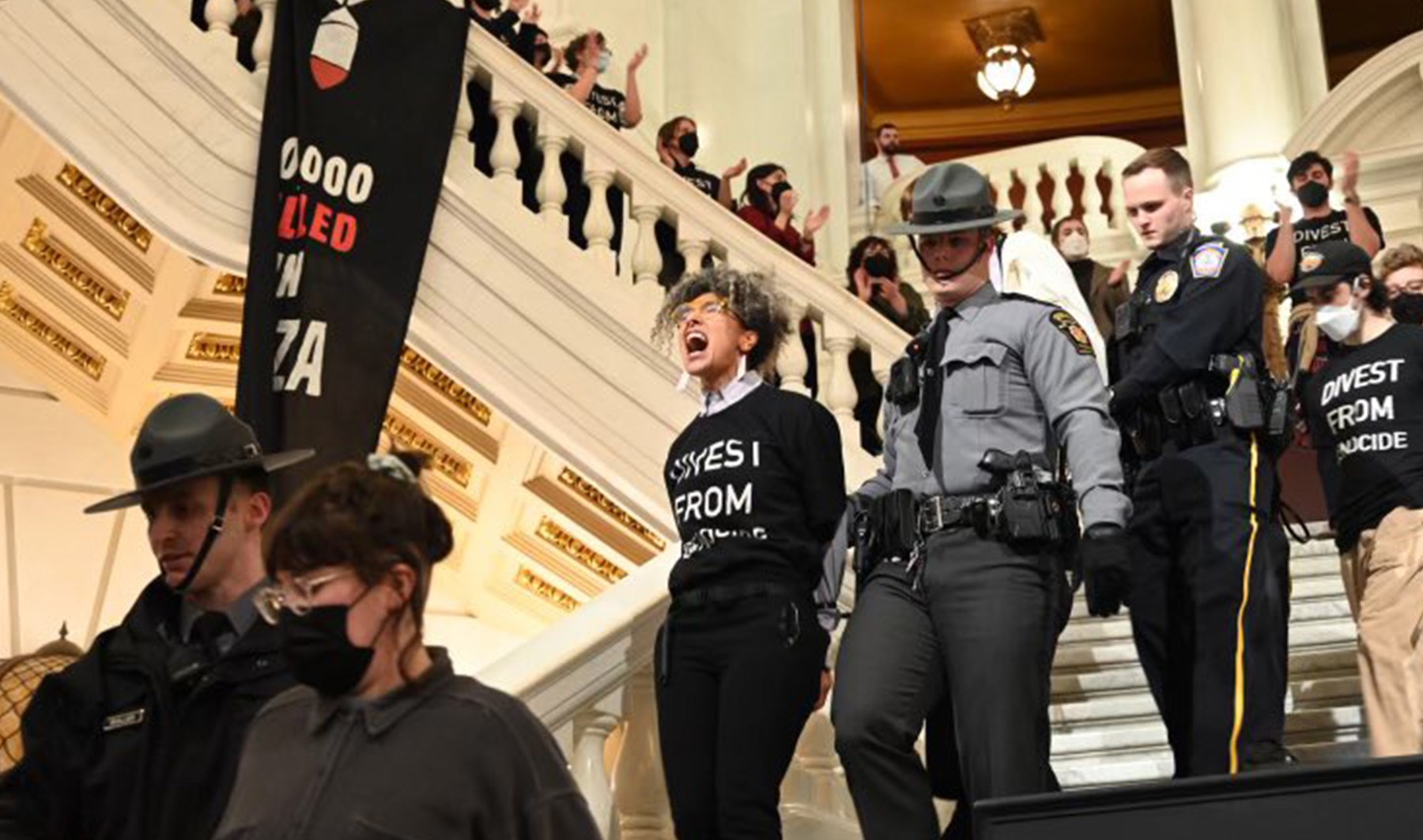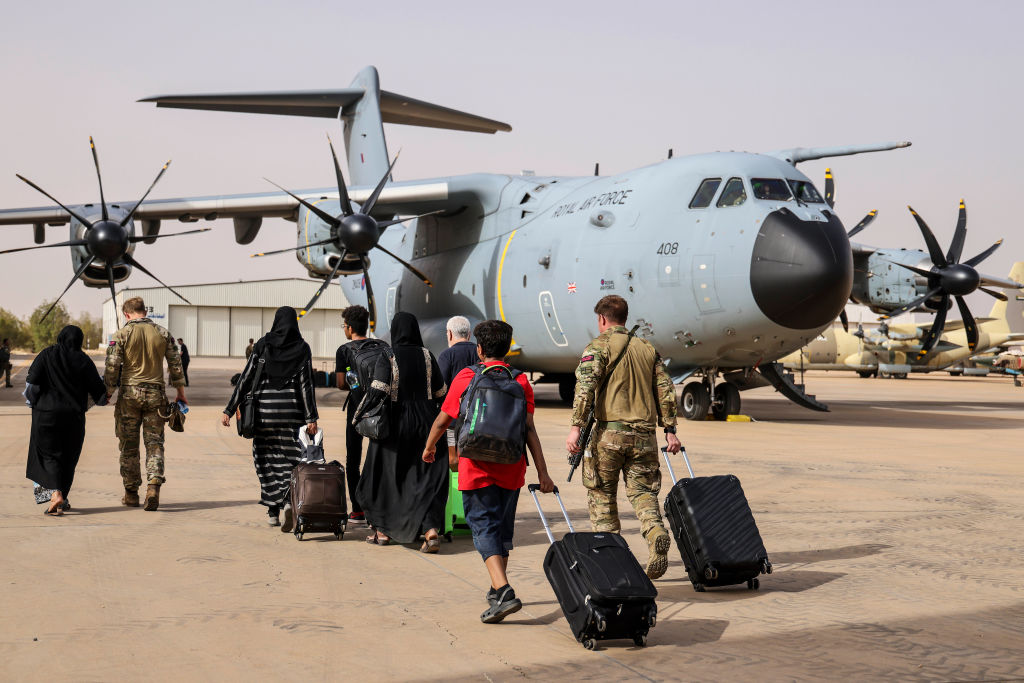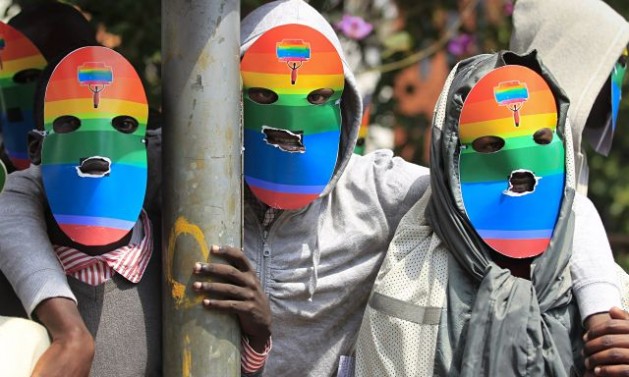‘We have a duty’: US doctor says ceasefire an ‘ethical imperative’ in Gaza | News
Of all the doctors and medical personnel killed in Gaza this year, Dr Osaid Alser estimates he knew half personally.
Alser, a researcher and resident at the Texas Tech University Health Sciences Center in the United States, grew up in Gaza City, Palestine’s largest city. He started his medical career there, starting as a student and eventually becoming a teacher himself.
But since the start of the war in Gaza on October 7, Alser has watched as Israeli bombs have rained down on his hometown and military forces have stormed into medical centres.
The result has been the near collapse of Gaza’s healthcare system. Only 11 hospitals — a third of those in the enclave — remain operational, with dwindling amounts of fuel and medical supplies.
Faced with the death and destruction in Gaza, Alser felt compelled to speak up. “We have a duty to say: Stop the war and ceasefire now,” he told Al Jazeera.
To him, calling for a ceasefire was an ethical imperative, not a political statement.
But not all healthcare providers feel the same way. Many feel an obligation to avoid commenting on conflicts, as part of a tradition that views medical workers as above the fray.
However, the intensity of the war — and its particular toll on Gaza’s health system — have spurred some to ask: When do medical professionals have a responsibility to speak out?
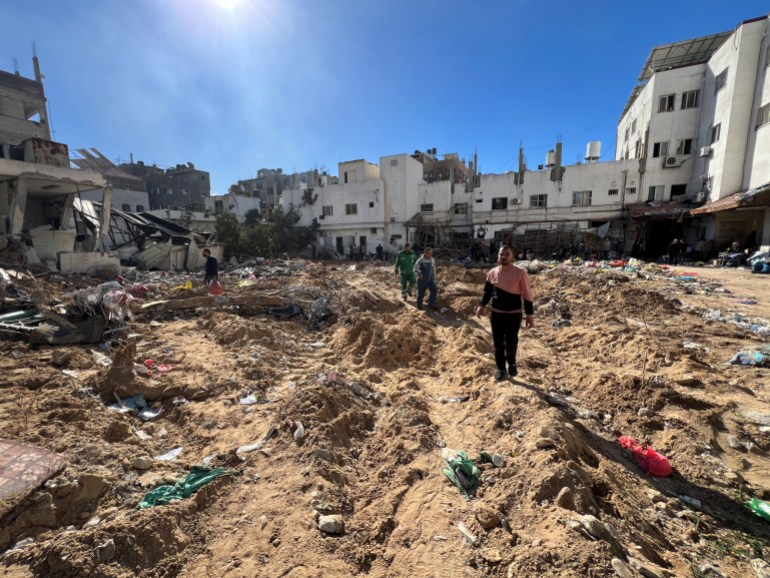
Debating ‘medical neutrality’
The debate erupted last month with a meeting of the American Medical Association (AMA), the largest professional organisation for physicians in the US.
Its House of Delegates, which sets the organisation’s policies, declined to debate a resolution that would have called for a ceasefire in Gaza.
According to the publication MedPage Today, some of the delegates felt the resolution would force them to decide whether the conflict in Gaza was a “’just war’ or ‘unjust war’”. That, they said, was not their role.
The concept of so-called “medical neutrality” stretches back to a history of civilian involvement in battlefield medical care, with some volunteer nurses tending to the sick and wounded on both sides of a conflict.
International law has since developed to protect the roles healthcare workers have in warfare, making it a war crime to intentionally attack medical personnel.
But “medical neutrality” does not necessarily mean impartiality. And some medical ethicists point out that the scale of the Gaza conflict has raised dire questions.
“The concern that a lot of people are having is that this is not business as usual,” Harold Braswell, an associate professor of healthcare ethics at Saint Louis University, told Al Jazeera.
“Israel has dropped an enormous amount of bombs on a highly condensed civilian area in a very, very short period of time. And that has created a very, very urgent situation.”
A unique circumstance
Gaza, a narrow strip only 11km (7 miles) wide and 40km (25 miles) long, is home to 2.3 million people. Palestinian health authorities estimate that at least 19,453 people have been killed, two-thirds of them women and children.
A further 1.9 million have been displaced, with tens of thousands living in the streets of Rafah after Israel ordered civilians to flee south.
Humanitarian organisations have warned of healthcare workers being killed, as bombs drop on hospitals and ambulance convoys.
Alser, the doctor in Texas, has taken it upon himself to sketch out the scale of the impact. He and his brother, also a doctor, launched an initiative last month to track the number of healthcare workers killed.
So far, they have documented 278 killed since the start of the war. That includes 104 physicians, 87 nurses and 87 others working in various medical roles.
“That includes a lot of my friends, my mentors, even my own medical students that I taught back in 2017, who went on to become doctors and have been killed,” Alser said.
6.12.2023 Update: IOF murdered 278 healthcare workers and kidnapped 41 just in the past 60 days.#NotATarget #Palestine #Gaza #Gaza_Genocide #WarCrimes #CeasefireNOW #WestBank #freedom #freepalestine #Palestine_Genocide #Gaza_Holocaust pic.twitter.com/kykaAaK6SX
— Healthcare Workers Watch – Palestine (@HCWWatch) December 7, 2023
“We’ve been documenting the names of course, because they’re not just numbers, and we’re posting their stories from people we know and trust on the ground.”
In addition, Israel has detained more than 40 health workers, including Dr Muhammad Abu Salmiya — the director of Gaza’s largest hospital, al-Shifa — and Alser’s former student, Dr Saleh Eleiwa. The rising numbers left Alser feeling no choice but to speak out.
“I just felt like we absolutely have to talk about this,” he said. “So that’s really the motivation: Seeing our colleagues, friends, family being killed — doctors, professionals who just work in medicine [and] go home after they work for many, many hours and they get killed.”
Rising calls for a ceasefire
Alser is not alone. The American Public Health Association (APHA), the largest professional body for public health workers in the US, issued an appeal last month for an immediate ceasefire, amid pressure from its members.
Healthcare labour unions and advocacy groups have likewise called for a ceasefire. And more than 100 faculty members at public health and medical schools signed a letter this month urging the US government to support a ceasefire.
US President Joe Biden has thus far avoided pressing for a ceasefire, citing Israel’s right to “defend itself” after the Hamas attack on October 7.
But members of the medical community are divided over how much pressure to place on Israel and whether its acts of war have reached a threshold that demands a unified ethical stance.
Much of that division has centred on whether the attacks on healthcare centres in Gaza amount to war crimes.
In a widely circulated opinion piece published in the Journal of the American Medical Association, Dr Matthew Wynia argued that health professionals do indeed have a responsibility to speak out on the war and denounce any crimes committed under international humanitarian law.
But he sees the issue as far from settled, citing Israel’s claims that Hamas fighters are using Gaza’s medical facilities “for offensive purposes, which can make striking them legal under limited circumstances”.
Even in those instances, however, Wynia said there were limits to the extent to which violence could be justified.
“If a facility is being used to hide military equipment and personnel, for example, any proposed strike on it must still ‘minimise’ potential harm to civilians, and the military value of the strike must be ‘proportionate’ to the civilian harms it might cause,” Wynia wrote.
In an email to Al Jazeera, Wynia said he fundamentally considers himself a pacifist and would personally support a ceasefire.
However, he added, “unless we posit that all doctors are ethically obliged to be pacifists, then I don’t think we can say that calling for a ceasefire in this war is an ethical obligation for all doctors”.
“And to be consistent, this would mean also calling for a ceasefire in Ukraine and in all other wars,” he said.
Article prompts backlash
Wynia’s opinion piece sparked a backlash in the medical community, with some readers saying it relied too heavily on narratives put forth by Israel.
Alser was among them. He and two colleagues — Canadian-Palestinian doctor Tarek Loubani, and Norwegian physician Mads Gilbert — wrote a response saying Wynia’s article lacked ethical clarity.
The article “muddied the moral intuitions held by many of us that attacking hospitals, infrastructure, and health care workers is wrong”, they wrote.
All three doctors had worked previously in Gaza. They said they had “never come across militants operating from within a hospital or restricting access to certain hospital areas”.
For its part, Israel’s military has released videos of weapons allegedly found in medical centres and given media tours of tunnels under the al-Shifa Hospital. No independent investigation has been conducted.
The Israeli doctor Zohar Lederman also said there should be no ethical ambiguity when it comes to the Israeli military’s siege of hospitals in Gaza.
“One of the most sophisticated militaries in the world should not murder hundreds of vulnerable patients, including patients receiving dialysis and newborns in incubators, who have nowhere else to go,” he wrote in his own response.
Wynia has since answered his critics with another, shorter article, saying medical professionals should condemn “both illegal use of and attacks on health care facilities” and war crimes committed by either side.
He also emphasised that there remains a diversity of opinions “on the ethics of Israel’s approach to this war”.
“In fact, I can attest that there are, and Israel’s defenders and critics are equally convinced they hold the moral high ground,” he said.
Time to ‘speak up more’
For Alser, the debate further underscores the need for Palestinian perspectives in discussions about the war, regardless of any professional repercussions he may face.
The 31-year-old doctor remained on call as the fighting began, watching the war in his homeland late at night or early in the morning.
In the weeks since the fighting started, his mother, five siblings, nieces and nephews have been displaced six times. They too briefly stayed at al-Shifa Hospital, before fleeing to Khan Younis and eventually Rafah.
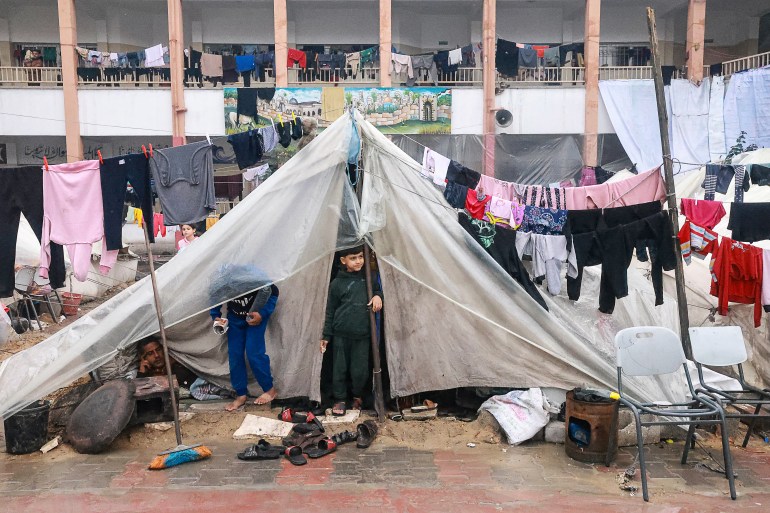
They are currently living in a tent. Alser explained that, as the Israeli siege continues and food runs scarce, they face malnourishment.
“For me, it was time to speak up and speak up more — to advocate for my family and call for protection for my friends, my people,” he said. “So, instead of just sitting at home crying and just doing nothing, I kind of shifted that energy to more like doing something good.”
“We’re being advocates,” he added, “and advocacy is a very important part of medicine”.
Check out our Latest News and Follow us at Facebook
Original Source

